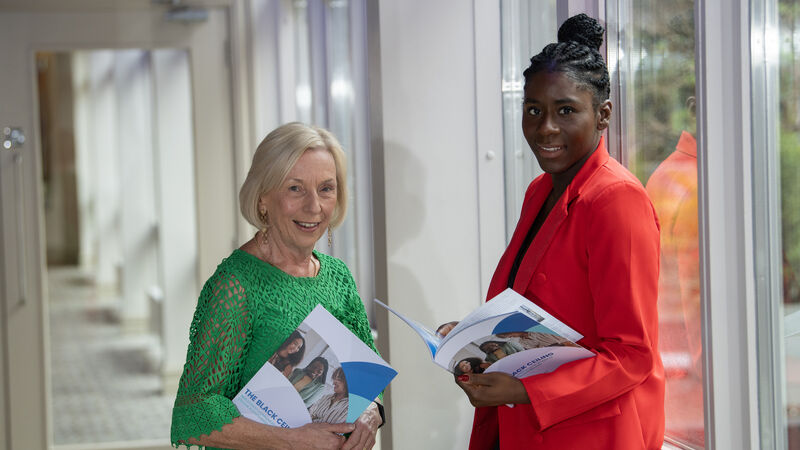Study reveals 'harrowing' experiences of women of colour working in rural Munster

Professor Margaret Linehan (left), Head of the School of Humanities at MTU and Dr Wendy Oke, CEO of TeachKloud (right) from Cork at the launch of a landmark study on the experiences of women of colour working in rural communities in southwest Ireland. Photo: Domnick Walsh
A new study—the first of its kind—has highlighted the “harrowing” experiences of women of colour working in rural areas across Munster.
The study, entitled 'The Black Ceiling' was carried out by staff at Munster Technological University (MTU) and the National College of Ireland (NCI) and involved interviews with 18 women of colour working or seeking employment.













